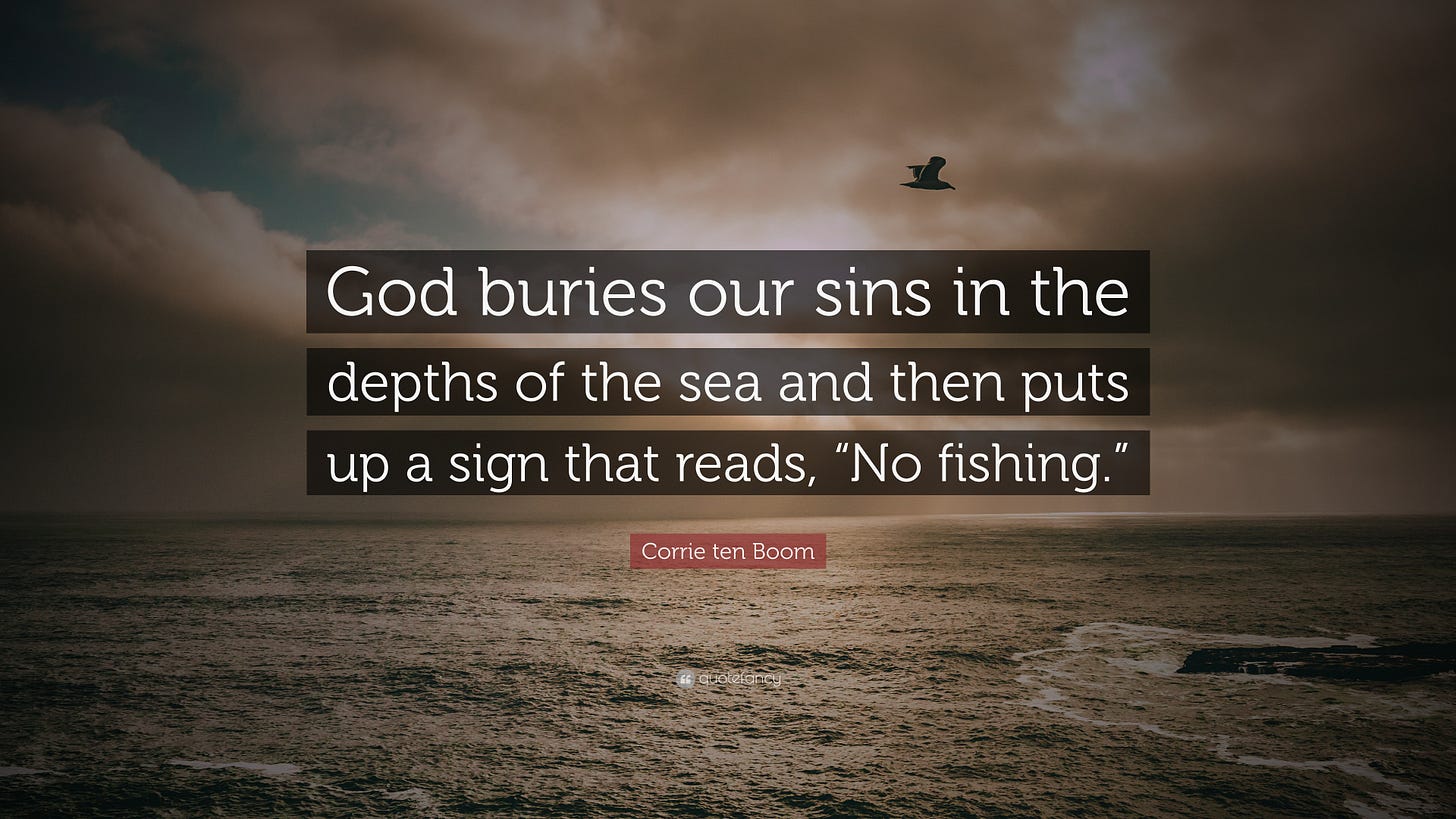A woman, convinced that she was receiving divine visions, frequently visited a bishop to share her experiences.
The bishop, growing weary of her visits, decided to test her. He told her, “If Jesus appears to you again, ask Him what I confessed in my last confession.”
Two months passed, and the woman did not return.
The bishop was relieved, thinking she had moved on. But one day, she appeared again. He reminded her of his question and asked if she had received an answer.
With a serene smile, she replied, “Jesus said He has forgotten what you confessed.”
Imagine that—an eternal God with infinite memory choosing to forget our sins when we sincerely confess them. This is not just a comforting idea; it is a reality revealed in Scripture.
The prophet Micah speaks of a “sea of forgetfulness” (Micah 7:19), a powerful image of God’s complete forgiveness.
Jeremiah echoes this truth when he proclaims that God has promised, “I will remember their sins no more” (Jeremiah 31:34).
This promise becomes real through Jesus Christ.
His passion, death, and resurrection assure us that God’s forgiveness is not just about wiping away our sins but about forgetting them entirely.
Through Christ, we are always given the chance for a fresh start, a clean slate, and a new beginning.
Yes, judgment exists, but so does redemption.
Israel struggled to remain faithful to God.
They sinned repeatedly, even becoming worse than the Egyptians who once enslaved them.
The prophet Isaiah urged them to repent and turn back to God. If they did, God would not only forgive but also forget their sins.
He promised to do something even greater than the first Exodus, offering them a new path of salvation.
In the second reading, Paul shares his personal experience of God’s forgetfulness.
He openly acknowledges his past sins and testifies to how God has forgiven him, continues to forgive his failings whenever he confesses, and patiently leads him toward heaven.
The Gospel presents a striking contrast.
The crowd, especially the elders, were fixated on the woman’s sin and eager to condemn her.
But Jesus, the eternal Word of God, looked beyond her actions and saw her heart. Instead of demanding a conventional confession, He extended His mercy. He told her
“Neither do I condemn you; go and sin no more.” In that moment, her deep shame, silent honesty, and humility became her confession.
And that was enough for Jesus to forgive and forget her sins.
Today, we are reminded of a profound truth—God does not hold our sins against us when we confess.
He forgives, He forgets, and He offers us a new path to renewal.
He invites us to move forward, free from the weight of our past mistakes.
As we reflect on our Lenten journey, we recall the lessons of the past weeks.
We considered:
The reality of the Dark Ages
The difference between truly living and merely existing,
The meaning of true repentance, and
How God crosses boundaries to reach us.
Today, we are reminded that He is also the God who forgives and forgets.
Jesus is our “sea of forgetfulness.”
Through Him, we encounter a God who does not seek to humiliate us in our repentance but instead welcomes us with mercy.
In today’s Mass and through the sacrament of confession, we are invited to experience this divine forgiveness firsthand.
God does not remember our confessed sins, and neither should we.
Instead, we should walk forward in the freedom of His grace.
This is what Easter is all about.



